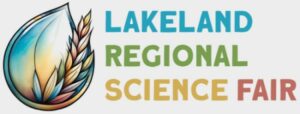Discovery Projects: The Quest for Knowledge
What is it?
These projects are all about answering a scientific question. You might start with a hypothesis and then design experiments to test it. Essentially, you’re contributing to the broader scope of human knowledge. This could be anything from “How does the concentration of a reactant affect the rate of a chemical reaction?” to “What is the impact of sleep on academic performance?”
Methodology
- Research: Heavy literature review to understand the existing knowledge in the area.
- Hypothesis: Formulate a question or assumption you want to test.
- Experiment: Design and conduct experiments that allow you to test your hypothesis.
- Data Collection: Collect data through your experiments.
- Analysis: Statistical analysis of the data to prove or disprove your hypothesis.
- Conclusion: Summarize the findings and suggest future research paths.
Who should choose this?
- If you’re curious about how the world works.
- If you enjoy performing experiments.
- If you’re considering a career in scientific research.
Examples
- Studying the effects of different soil types on plant growth.
- Researching how different diets affect the lifespan of a particular animal species.
Innovation Projects: The Solution Creators
What is it?
- Innovation projects are geared towards solving a specific problem or improving an existing solution. Say you’ve noticed that people waste a lot of water while washing dishes. Your project could be designing a water-efficient dishwasher. Or maybe you’ve realized that phone batteries die too quickly, and you want to innovate a new kind of battery technology.
Methodology
- Problem Identification: What problem are you trying to solve?
- Research: Study existing solutions to identify their weaknesses or gaps.
- Ideation: Come up with multiple design ideas to solve the problem.
- Prototype: Build a preliminary version of your solution.
- Testing: Conduct tests to validate the effectiveness of your design.
- Refinement: Make adjustments based on test results.
- Implementation: Apply your solution to real-world scenarios.
Who should choose this?
- If you love solving problems.
- If you enjoy building and creating things.
- If you’re considering a career in engineering or product design.
Examples
- Creating a phone app that helps people find parking spots in a crowded city.
- Designing a more efficient system for recycling plastics.
Key Differences
| Factor | Discovery | Innovation |
| Primary Goal | Answer a scientific question | Solve a problem |
| Methodology | Experiment-centric | Design-centric |
| Outcome | Knowledge, academic papers | Products, prototypes, patents |
| Career Relevance | Research roles, academia | Engineering, design, entrepreneurship |
So, there you have it! If you’re the type of person who loves asking “why?” and digging deep into understanding the mysteries of the universe, go for a Discovery project. If you’re more into the “how can we make this better?” approach and love tinkering and building stuff, Innovation is your game.
